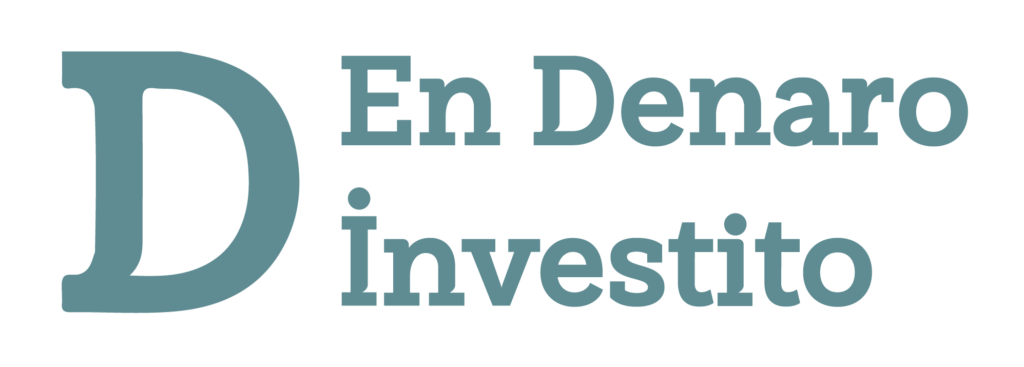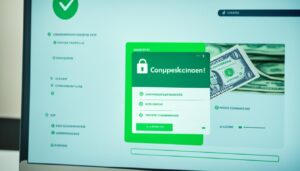Getting loan approval can seem tough, but the right documents make it easier. This part will show you the key paperwork to collect. This checklist ensures you have everything needed for your application.
This checklist helps you organize needed documents. It saves time and prevents delays. The documents prove your financial health, income, job, assets, and debts. They’re vital for lenders to know if you can pay back the loan.
Key Takeaways:
- Gather all the required loan documentation to streamline the application process.
- Ensure accuracy and completeness of all documents.
- Include personal identification documents, proof of income and employment, asset and liability documents, and property-related documents (if applicable).
- Be aware of any additional documentation requirements based on your specific loan type and circumstances.
- Organize and submit your loan documents efficiently to speed up the approval process.
Understanding the Importance of Loan Documentation
Before we look at the mortgage and home loan document checklists, it’s key to know why these documents matter. Proper documentation lets lenders understand your finances better. This makes them able to decide wisely on your loan request.
Good loan documentation helps lenders check your financial health. They can verify your identity, income, and job, look into your assets and debts, and get the scoop on the property for mortgage loans. This process is crucial.
When you submit your documents on time and correctly, you show that you’re a serious borrower. This makes lenders see you as more reliable, which can help you get better loan terms.
Mortgage loan paperwork can be a bit more detailed. This is because these loans usually involve more money and longer repayment times. Lenders have to be sure the property you want is good security for the loan.
“Proper documentation is key to getting your loan approved. The more organized and complete your loan documentation is, the smoother the loan processing and approval process will be.”
Accurate loan documents not only make the loan process faster but also protect you as the borrower. You give a full view of your financial situation. This leaves no room for future misunderstandings or disputes.
The Specific Requirements for Mortgage Loans
If you’re applying for a mortgage loan, you’ll need to give more documents related to the property. This includes the property purchase agreement, appraisal reports, and insurance details.
The mortgage document checklist helps you organize everything you need. Following these steps shows you’re ready and serious about buying a home.
| Required Documents for Mortgage Loans | Additional Information |
|---|---|
| Property purchase agreement | Signed contract outlining the terms and conditions of the property purchase |
| Appraisal reports | Documentation confirming the value of the property being financed |
| Insurance details | Proof of homeowner’s insurance for the property |
| Title documents | Official documentation establishing legal ownership of the property |
By handing in the required mortgage documents, you help lenders check the property’s worth and risk. This also proves the property is up to standard.
Knowing why loan documents are important and what you need for a mortgage helps you get ready. This ensures a smoother application for your loan. Next, we’ll delve into the personal documents needed for your application.
Personal Identification Documents
Starting your loan application means you must have key personal identification documents ready. Lenders need these to check your identity and the accuracy of your info. This step helps speed up the approval process, boosting your chances to get the loan.
Here is a list of the personal identification documents you’ll likely need for a loan:
- Government-issued ID: A valid government-issued ID like a driver’s license, passport, or state ID card is needed to prove who you are.
- Social Security Card or Number: Your Social Security card or number is also required for verification.
- Proof of Address: You might need to show a document that confirms where you live, like a utility bill, lease, or recent bank statement.
Make sure all details in your documents are correct and current. Wrong or outdated information can cause delays or your loan application might even be denied.
Always check with your lender for their document requirements as they can differ. Being prepared with the right personal identification documents eases the process. It moves you forward towards getting the financial support you’re seeking.
Proof of Income and Employment
Lenders need to know you can repay the loan. That’s why they ask for proof of income and employment. This guide helps you with the documents you need for your loan application.
Here are the key documents you should include:
- Pay stubs: Show your most recent pay stubs from the last 30 days. This proves your current income.
- Tax returns: Add your tax returns from the last two years. Include all schedules and forms. This shows your yearly income. It’s especially useful for people who are self-employed or have extra income sources.
- Employment verification letters: Get a letter from your employer. It should confirm your job, status, and how much you make. The letter must be on company letterhead and signed by someone from HR.
- Bank statements: Provide bank statements, usually for the past three to six months. They offer more proof of income. This step is key if you have money coming in from other places than a regular job.
Gather these documents neatly before you apply for your loan. Requirements might change depending on the lender. Always double-check with your loan officer or mortgage broker for any extra documents needed.
By preparing and providing all necessary documents, you improve your loan application. This can boost your chances of getting approved.
Asset and Liability Documents
When you need a loan, lenders must look at your finances to see if you’re good for it. They’ll look at what you own and what you owe. Having the right papers ready makes the loan process smoother.
Below is a list of the documents you might need:
| Asset Documents | Liability Documents |
|---|---|
| Bank statements: You’ll need to show your checking and savings account statements. They prove how much money you have. | Outstanding debts: Bring statements or records that show any money you owe on loans or credit cards. This tells lenders how much debt you have. |
| Investment statements: If you have investments like stocks, bonds, or retirement accounts, provide those statements. | Debt payment history: Lenders might want to see how you’ve been paying off existing debts, like student or car loans. |
| Property appraisals: If you own real estate or valuable items, bring appraisals to show their worth. | Child or spousal support obligations: If you make regular support payments, you should have documents to prove it. |
Collecting these documents before you apply can make the loan process faster. It shows you’re financially stable, increasing your chances of approval.
Property Documents (for Mortgage Loans)
Applying for a mortgage loan means you’ll need specific documents. These details are crucial for the loan’s approval. By having your paperwork in order, you can speed up the application. This way, you’ll be closer to getting your dream home. Let’s look at the important documents needed:
1. Property Purchase Agreement
The property purchase agreement is key. It’s a contract between the buyer and seller that lists sale terms. It shows the price, closing date, and conditions.
2. Appraisal Reports
Appraisal reports evaluate the property’s market value. Lenders need this to match the loan to the property’s value. It prevents paying too much or borrowing too much.
3. Insurance Details
Insurance is crucial for a mortgage. It protects the lender’s investment if there’s damage. Make sure your insurance covers the property’s value as the lender wants.
It’s smart to talk to your lender or loan officer about these documents. Different lenders may need different things. Meeting their specific requirements is key for your loan application.
Keep your documents organized and ready. This makes loan processing faster. Showing you’re prepared and detailed helps your chance of owning a home.
Additional Documentation Requirements
When you apply for a loan, the type and your situation affect the paperwork needed. You’ll likely need extra documents to back up your application. Not having these can slow down or even stop your loan approval.
Let’s look at key documents you might need for your loan:
- Divorce Decrees: Your lender might want your divorce decree. This shows your financial commitments and any support you might pay.
- Rental Agreements: If you own rentals, lenders may review your agreements. They want to understand your income from these properties.
- Gift Letters: Getting help with your down payment? You’ll need a gift letter. It confirms the money is a gift, not a loan.
- Bankruptcy Documents: Have you filed for bankruptcy before? Lenders will ask for these documents to review your financial past.
- Proof of Insurance: For some loans, like home equity, proof of insurance on your collateral is necessary.
Always talk to your lender or loan officer about the specific documents you need. They will give you a detailed list and help you through the application. This ensures your loan process goes smoothly.
| Additional Documentation Requirements |
|---|
| 1. Divorce Decrees |
| 2. Rental Agreements |
| 3. Gift Letters |
| 4. Bankruptcy Documents |
| 5. Proof of Insurance |
Organizing and Submitting Your Loan Documents
Getting your loan documents in order and submitting them quickly is key. This makes the approval process faster. Follow the tips below to arrange and send your loan docs the right way.
Gather all Required Documents
First, collect all documents your lender needs. Check the loan approval checklist. This list may have IDs, income proof, and more. Don’t forget property papers for mortgage loans, and any extra papers needed.
Create a Checklist
After collecting your papers, make a checklist. You can use a spreadsheet to note down each document’s details. Mention the name, purpose, and if it’s submitted or still needed.
Pro Tip: Color-coding your list makes it easy to see what’s done.
Organize Your Documents
Now, organize your papers. Put them in clear folders or digital files. Make sure everything is in order.
Pro Tip: Keep both digital and physical copies for easy access anytime.
Label and Date Documents
Label each document clearly. Use titles like “Personal ID” or “Bank Statements”. Dating them helps keep track.
Double-Check Accuracy
Before sending, check each paper carefully. Errors or missing info can slow things down.
Prepare Copies
Copy all documents for yourself before submitting. It’s good to have backups.
Submit Documents Timely
Send your documents as soon as they’re ready. Keep an eye on any lender deadlines.
Track the Progress
After sending, watch the progress. Stay in touch with your lender to ensure all is well.
Conclusion
In this article, we’ve given you a key loan document checklist needed for loan approval. By carefully following this loan paperwork checklist and having all needed documents ready, you can boost your chances of quickly getting your loan.
Keep in mind, every lender might ask for different things. So, always check their loan approval checklist and get advice if you need it. Being organized and submitting your loan documents properly is key to a fast and easy loan approval.
By focusing on the loan processing checklist and collecting all documents early, you’ll be ready for the loan application. This makes it simpler for lenders to check if you qualify and speed up your loan approval. Best wishes on getting your loan!













